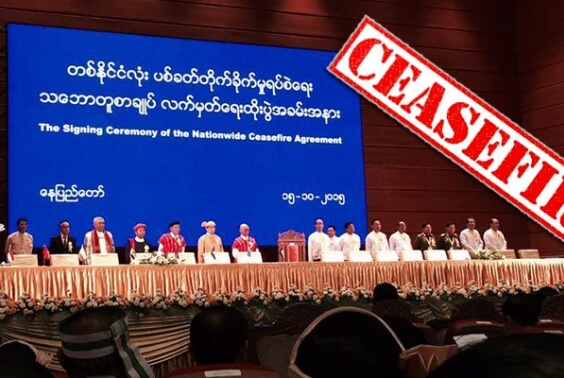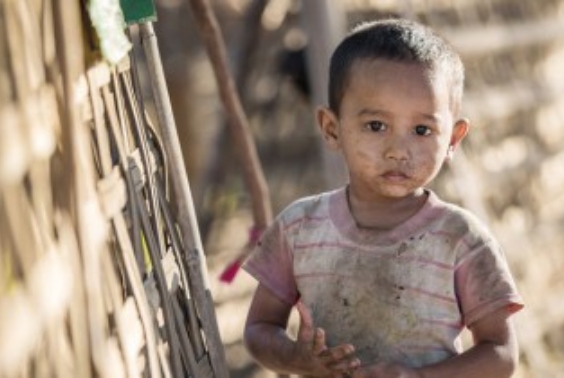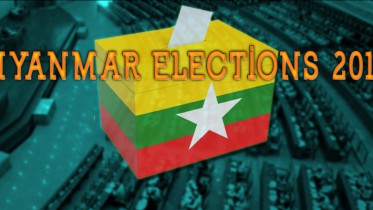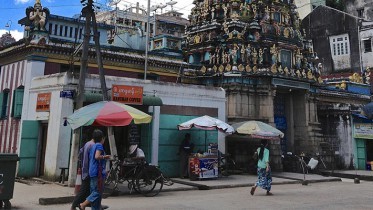- MYANMAR
Will the 2015 General Election Change Myanmar?
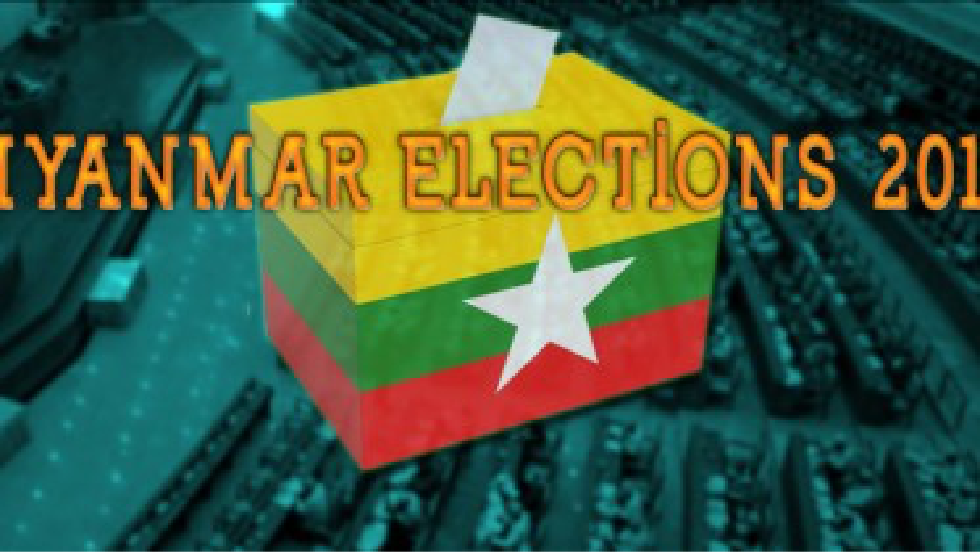
Myanmar approaches a turning point in the year of 2015. A general election is scheduled for late in the year. Parliament members occupying over 1,100 seats in the two houses (the Pyithu Hluttaw and Amyotha Hluttaw) of the Pyidaungsu Hluttaw (the Union Parliament) and in region/state legislatures will be up for re-election. As in any country that holds elections, the general election is a major event for Myanmar’s national politics. Here, however, it is more than just that: it will be the first Burmese general election since the country made global news by transitioning to “civilian” rule in March 2011.
A general election was also held in November 2010. The majority of the currently serving parliament members were elected at that time, but that election was run under the junta. The author observed the proceedings in-person on election day. At the time it was unclear whether a transition to “civilian” rule would actually be implemented in the first place, and the election was held with significant restrictions on freedom of expression, freedom of association and freedom of assembly.
The result was a landslide victory for the Union Solidarity and Development Party (USDP), where government leaders from the days of the junta continued to dominate key posts. It is unknown whether the junta interfered with the results of the 2010 general election. Even if they did not, the setting did not allow for eligible voters to obtain sufficient information about the candidates and cast ballots freely. It was very different from now. “Civilian” rule was introduced in 2011, after which the National League for Democracy (NLD)—the party led by Aung San Suu Kyi that boycotted the 2010 general election—participated in the April 2012 by-elections. Civil rights such as freedom of expression were considerably expanded. Thus, barring any illegitimate electoral interference by the government, the next general election will be Myanmar’s first free and fair one since 1960, 55 years ago. It will be a major event in the history of Myanmar.
So will the 2015 general election change Myanmar? Since it is still too soon to make specific predictions about the election, let us here consider major trends now present. Then, let us slightly broaden our perspective and examine the political significance this general election will have. It will have an effect on Myanmar’s future in many ways, and more than a normal election for choosing parliament members.
Aung San Suu Kyi and the NLD
We should first begin in an easily comprehensible matter: Aung San Suu Kyi. The question of whether she will become President after the next general election is always a hot topic in Burmese politics. Aung San Suu Kyi has expressed her ambition to be President, and it seems that the U.S. government and the EU, which expressed their support for her during her house arrest, are eagerly waiting for this to happen. Yet it will not be simple for this to come about. Because her son has British citizenship, Aung San Suu Kyi does not meet the constitutional requirements to become President (Clause 59 (f)), so under the present circumstances she cannot legally assume this office. Aung San Suu Kyi, who was born in 1945, does not necessarily have a lot of time remaining, so she is likely to work on the President and ruling party to amend the Constitution up until the last minute, but these partners have little desire to amend the relevant clause and the likelihood is low that Aung San Suu Kyi will become President soon as a result of the 2015 general election.
This is where the problems begin. Even if Aung San Suu Kyi cannot become President, there is no doubt that if the situation remains as it currently stands, her party, the NLD, will win a big share of the vote. The NLD and other political parties have become more active due to the greater freedoms put in place since the transition to “civilian” rule. According to the party’s leadership, there are presently over 2 million party members. This year also marks the 100th birthday of General Aung San, Aung San Suu Kyi’s father and a national hero for his leadership in Myanmar’s independence movement. The party is organizing events for almost every month and is proceeding with the preparations for the election campaign late this year. Since there is a lack of reliable public opinion polls in Myanmar, it is difficult to accurately gauge the political party approval ratings, but a majority of the 45 contested seats in the April 2012 by-elections—43 seats—were taken by the NLD in a landslide victory. Taking that into consideration, the people’s support for the NLD is solid. We may think that a politician’s popularity is a tenuous thing, but Aung San Suu Kyi has maintained her popularity after surviving the long years of negative campaigning by the junta, and, barring any major event, that popularity is not likely to fade. Aung San Suu Kyi’s activates since being elected a parliament member in April 2012 have not been without criticism, but that has not had any large effect on her level of support. If the election is free and fair, then the NLD, boosted by Aung San Suu Kyi’s popularity, is highly likely to become the top party.
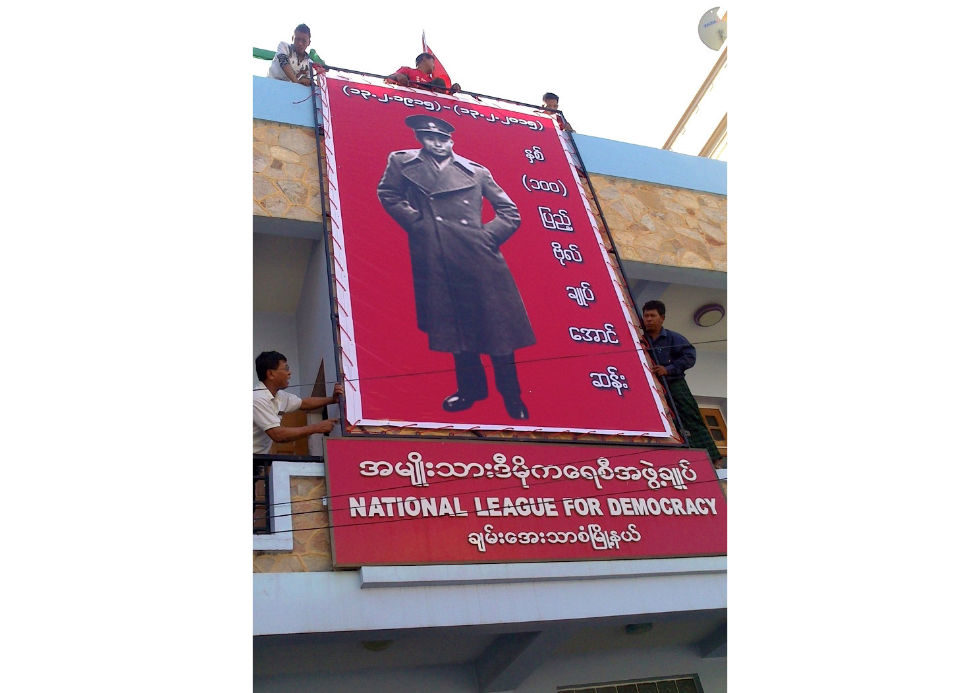
If that happens, then the President will be selected in a vote by the Parliament members. Even if Aung San Suu Kyi cannot become President, an NLD parliament member will still be chosen to assume office. So then who will become President? This is a natural question to ask, but it is a surprisingly difficult one to answer. There is no leading figure in the NLD after Aung San Suu Kyi, and even after asking people within the party, there is still no clear answer. The party’s support has always depended on the charisma of Aung San Suu Kyi, and she has an enormous influence on decision-making within the party. Furthermore, the party organization’s structure, financial resources and personnel are still fragile. Therefore, no influential member other than Aung San Suu Kyi has emerged under the current circumstances. This gap between Aung San Suu Kyi and the other leaders will not be filled easily. There are also weak connections between higher-ranking party members and those who joined after the shift to “civilian” rule. These weaknesses in the party organization might rise to the surface when selecting candidates, in the election, and afterward during the process of choosing the President. This will naturally lead to the destabilization of the administration. Of course, it is expected that a party will face difficulties when running its first administration, so the more important issue may be whether the NLD can weather them.
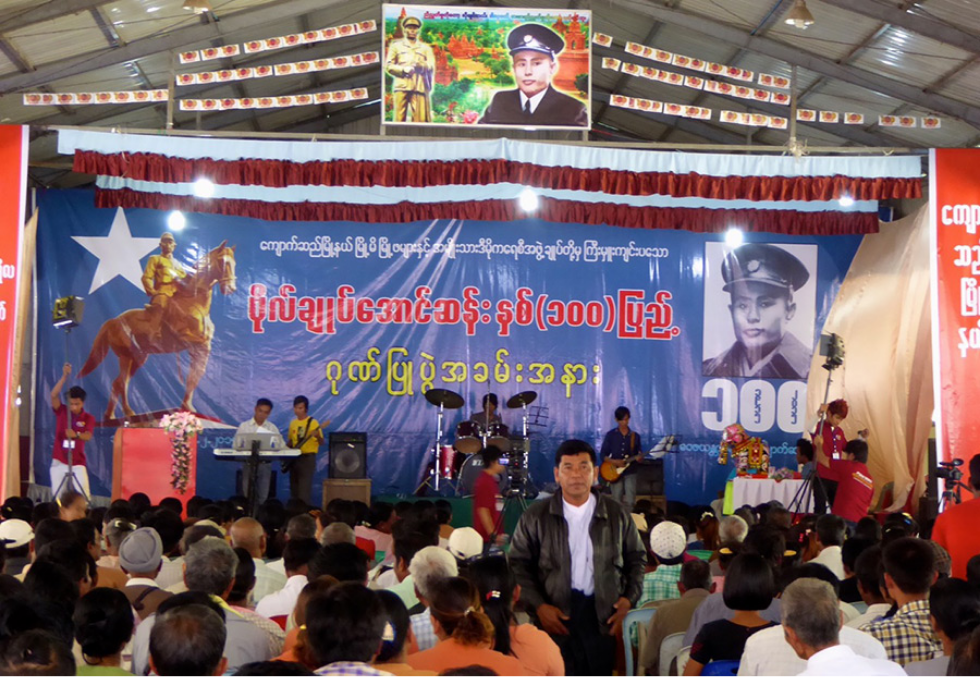
Ruling Party under the Shadow of the Junta’s Influence
Next let us shift our attention to the government administration. Political and economic reforms have moved forward in the three years since the transition to “civilian” rule. Diplomatic relations have improved dramatically with the West, with which Myanmar had had very unfriendly ties. The Asian Development Bank predicts that Myanmar’s economy will grow at a rate of 7.8% in fiscal 2014 as well as 2015. That is a high figure. Of course, when one begins referring to the reforms’ inadequacies, the list becomes long: delays in developing the legal system, infrastructure development behind schedule, an inadequate environment for investment, soaring land prices, an insufficient pool of labor, the government’s lacking competency in policy formation, corruption, human rights violations, restrictions on civil freedoms… There is a mountain of issues. However, when one recalls that it was difficult even to publicly point out such problems under the junta, it is not out of place to commend the government’s performance since transitioning to “civilian” rule. Those who genuinely merit such praise are President Thein Sein and the ruling USDP. But that is not what happens. The administration’s successes do not necessarily directly translate into support for the ruling party. Why is this?
The biggest reason is that Myanmar’s shift to “civilian” rule was implemented without an adequate reckoning of its past. The transition in 2011 was carried out under the supervision of the junta according to the 7-Step Roadmap announced in 2003. In the process, a major anti-government protest led by Buddhist monks broke out in 2007, which the government suppressed with considerable violence. The protest ended up becoming part of the impetus for the transition to “civilian” rule that achieved the “reform and opening up” of Myanmar, yet on the other hand the government has hardly sought to assign responsibility for the variety of problems that occurred under the junta and it is transforming the system in a destructive manner. That is why resentment toward the junta still smolders in society. A movement has recently sprung up in many regions in which farmers are demanding the return of farmland confiscated during the junta’s rule. This serves as one example of the insufficient handling of the junta’s past mismanagement.
The USDP is a political party formed through the restructuring of the Union Solidarity and Development Association (USDA), originally a mass mobilization organization of the junta. Former generals sit in every leadership post of the party. Even if they change their dress from military uniforms to longyi, a Burmese skirt that is part of the traditional ethnic costume, people see the USDP as being under the junta’s shadow. There are many who speculate that Than Shwe, who ruled the country as a dictator from 1992 until the institution of “civilian” rule, is still behind the current administration. No matter how far Thein Sein implements reforms, they will not bring forgiveness for the junta’s oppressive rule that lasted for approximately 50 years. In that case, the 2015 general election will probably not be an election that assesses the record of the ruling party since 2011, but rather one that judges the junta that began with a coup d’etat on September 18, 1988. For Burmese citizens, the general election will be a chance to exact punishment, so to speak, on the ruling party that stands in the shadow of the junta’s influence. Even though the USDP by far outmatches the NLD in organizational strength and financial resources, the former is at a disadvantage. The key for the USDP will be how well it can separate itself from its old image as an organization linked to the junta and promote its achievements under “civilian” rule. Under these circumstances, Thein Sein’s popularity is said to be relatively high among the people, and he may try to elicit support for the party by again assuming the USDP’s top post, although he did say that he would retire in 2015.
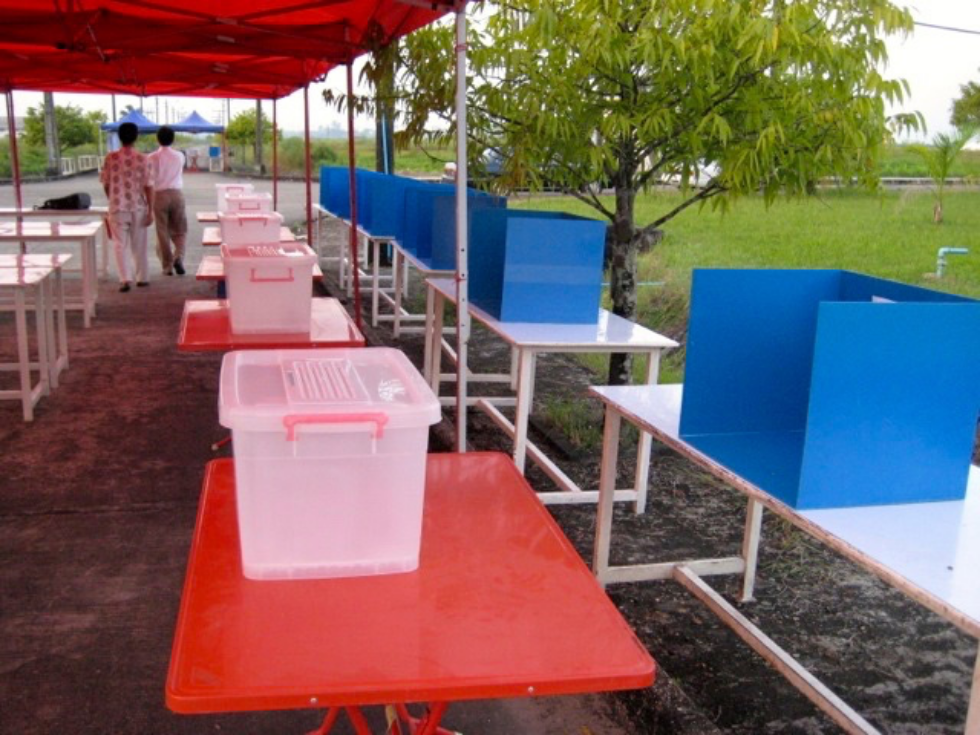
Other Important Matters Concerning the General Election
There are other important matters concerning the general election besides a transfer of power. Let us address four of them. First is the fundamental issue of whether Myanmar will truly run a free and fair election. Sensing a crisis, the USDP might join with the government to run a campaign that borders on vote-buying (like when it requested votes in the 2010 general election in exchange for promises of road construction). There is a possibility that cash will be distributed more directly and we can predict the USDP will use the state-run media to conduct a negative campaign against the opposition parties. However, the level of international attention on this general election will be high, and if the USDP uses its status as the current ruling party to unfairly interfere in the election, then on top of the domestic backlash there will be an inevitable drop in faith from abroad in Myanmar’s reforms. The reaction from the West in particular would probably be considerably negative. It is hard to imagine, considering the proactive stance the President has taken on improving relations with the West, that he would rashly interfere in the general election, but on the other hand, the ruling party and the business community are wary of a power transfer to the NLD which has little experience in government administration, so the situation is still unpredictable. Some are calling for an electoral alliance or coalition between the USDP and NLD in the run-up to balloting.
Secondly, a free and fair election is not an issue that concerns the government alone. It will also become a big challenge for civil society. There is no time for violent partisan clashes caused by electioneering, as when sectarian and ethnic disputes flared up in some areas of Indonesia in 1999 during the country’s first general election after instituting democracy. There is a high likelihood of violent disputes arising if a government’s ability to govern is weak and its society is deeply divided. In Myanmar’s case it is difficult to imagine a situation in which the state would crumble because of an election, but we cannot deny the possibility that during the election campaign the political parties or candidates may engage in radical nationalistic speech or religiously biased discourse. This could lead to violent clashes. Moreover, it is difficult to expect the police or other government institutions to have the ability to adequately suppress violence, given what we have seen in clashes between Buddhists and Muslims in the past few years. We must also pay attention to the trends in civil society vis-à-vis the general election.
Thirdly, even if the general election is free and fair and the NLD becomes the top party, that does not immediately mean democracy has been introduced. There are numerous undemocratic provisions in the 2008 Constitution. Changing them requires the consent of at least three-fourths of the Pyidaungsu Hluttaw. Three-quarters of its parliament members are chosen in the general election, while the remaining quarter are military personnel appointed by the commander-in-chief of the Armed Forces. In other words, the Armed Forces have the right to reject constitutional amendments, and institutionally they can select military personnel to be President and one of the two Vice Presidents. Thus the system has been designed so that in a strict sense, democracy cannot arise without the authorization of the Armed Forces. There is strong criticism of this setup both domestically and from abroad. The NLD, too, has always criticized it. If power changes hands in the 2015 general election, it will put pressure on the Armed Forces, and if the NLD can become the top party or form a ruling coalition without the USDP, then, even if they cannot amend the Constitution, they can pass laws through ordinary legislative activity. If that happens, then it will create a tense relationship between the NLD and the Armed Forces within the government and the legislative branch, which could possibly cause political instability.
Lastly, the conclusion of Myanmar’s long-running civil war will also bear on the 2015 general election. Governance after the transition to “civilian” rule was a process of agreeing to make the 2008 Constitution the basic rules for state administration and politics. However, armed groups of ethnic minorities have still not been subsumed into this new framework. Many of them have never been under the effective control of the state since the entirety of Myanmar gained independence in 1948. The Communist Party and the ethnic minority forces that staged armed uprisings had established bases along the national border, and within Myanmar there had been continuous fighting between the Myanmar Armed Forces and these armed groups. In addition to political and economic reforms, an important political issue after the 2011 shift to “civilian” rule was establishing a ceasefire agreement with these ethnic minorities. Until now, under the leadership of the President, Myanmar has held countless meetings to reach a national ceasefire agreement, and the government and armed groups have sought out conditions for a ceasefire agreement. However, just among those stakeholders with the influence to join in the negotiations there are more than 15 armed groups, so it is not easy to accommodate all their interests. Not only that, but there are still armed clashes erupting between the military and armed groups in Kachin State along the Chinese border and in Karen State along the Thai border. Thein Sein had originally sought to reach a ceasefire agreement in 2013, but it seems it will still take much time. The desirable scenario for the government is probably one in which some of the armed groups integrate with the military, while the others turn into political parties and participate in the Union Parliament election and in region/state legislature elections in 2015. The circumstances make it quite difficult for this scenario to become a reality. Even so, attention will be fixed on whether some of the armed groups will lay aside their weapons and begin adopting a more peaceful approach by participating in politics.
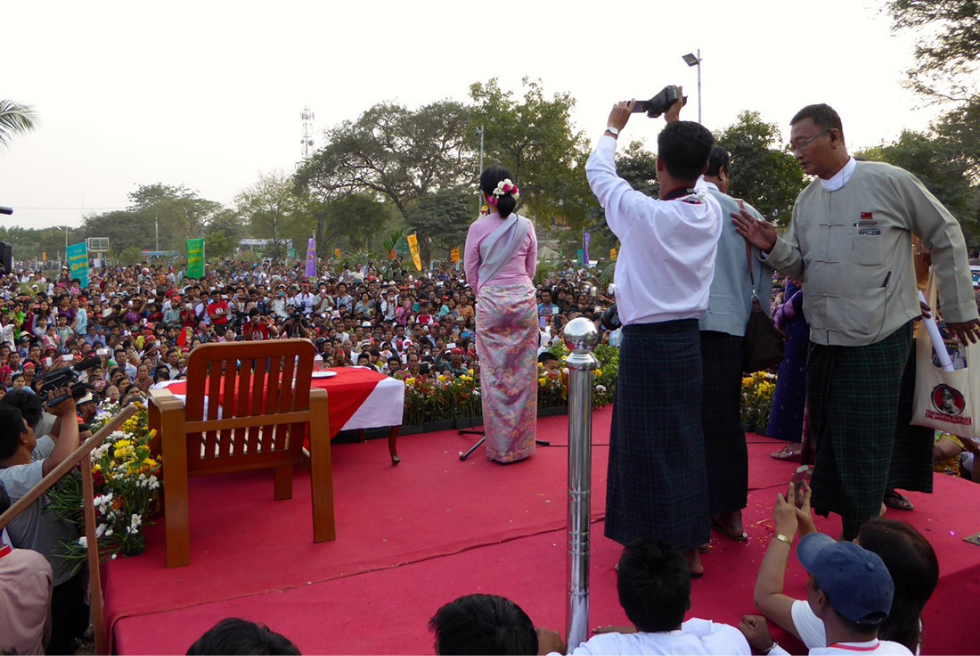
Conclusion
Will the 2015 general election change Myanmar? There is little doubt that it will alter substantially important facets of Burmese politics in a way that will set the country in either a desirable or undesirable direction. The basic institutional setting for Burmese politics is based on the 2008 Constitution. The political process that is based on this Constitution, and which has gradually become entrenched since March 2011, is the standard process. However, we must not forget that the legacy of the former junta lies behind this official system. That is to say, the network led by President Thein Sein (who was the number-four leader during the junta’s rule), including Speaker of the Pyithu Hluttaw, Shwe Mann (who was the number-three leader) and other former generals who hold other key posts of the state, plus the administrative experience they have individually accumulated, have been what makes the government work. The combination of these two elements provided the momentum behind political and economic reform. The Armed Forces’ role as a watchdog over this official system and the reform process will not change anytime soon. Meanwhile, it seems the 2015 general election will cause significant changes for the network of former generals. It has been almost five years since the last general election, but if people other than active and retired military officials can take hold of the core of the political structure, then that will be the first time in 53 years, since the March 2, 1962 coup d’etat. Burmese politics faces a turning point this year and next.

Center for Southeast Asian Studies
Kyoto University




